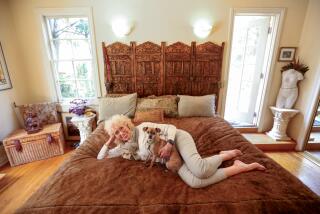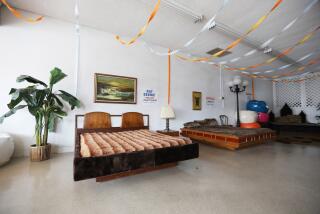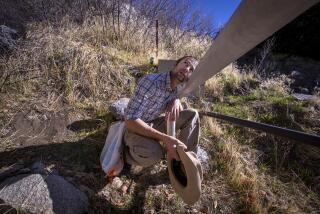Company Wins Water-Bed Suit : Jurors Favor Santa Ana Firm in Patent Battle
- Share via
A small Santa Ana firm has won a patent infringement battle against Somma Mattress Co., a Los Angeles-based water-bed maker that has been successful at using its patent to keep competitors out of a growing segment of the water-bed market.
E&S; Vinyl Manufacturing was one of eight firms to be sued by Somma in the past 5 years for allegedly infringing on its patent for a water-filled tube used in some water beds. Five others have agreed to stop making the water-cylinder beds rather than face a court battle.
The U.S. District Court jury in Santa Ana found Friday that E&S; Vinyl’s product did not infringe on Somma’s patent because the patent does not cover all beds with water cylinders, just its own particular design.
“The steamroller has been stopped,” said Richard La Bianco, president of Santa Ana-based Watercloud Bed Co., which is being sued by Somma.
“If Somma had won, they could have cornered a $150-million market,” said attorney Daniel J. Callahan, who represents Watercloud Bed Co. Callahan said he plans to ask that the case against his client be dropped.
Officials at American National Watermattress Corp. in Anaheim also said they plan to seek a dismissal.
Henry Cantillo, owner of E&S; Vinyl, said he was relieved by the verdict.
“I have a chance to breathe better,” Cantillo said. “Had we lost, it would have put us out of business.”
Cantillo said that he has lost many of his customers during the past 2 years because of the lawsuit. Sales at his firm, which designs and makes the vinyl used for water cylinders, have fallen from about $2 million in 1986 to $800,000 last year.
Somma President Angel Echevarria declined to comment Monday because “the case will probably be appealed,” an employee at Somma said. Somma attorneys also declined to comment.
Cases of patent infringement decided by jurors are frequently overturned by an appeals court, patent litigation attorneys said Monday. But James Andres, attorney for E&S; Vinyl, said the judgment for E&S; Vinyl was based on “hard facts” and he believes that there is little chance of a reversal.
Andres used 19th-Century newspaper advertisements and British medical journals from the same time period to show that the water-filled tubes had been used in mattresses long before Somma obtained its patent.
Somma had claimed the sole rights to produce a hybrid-mattress that contained water-filled, plastic cylinders surrounded by foam for insulation and covered with traditional mattress ticking.
The tubes are designed to reduce wave motion and make beds lighter. The water-filled tube mattress is one of many water-bed styles that account for nearly $1 billion a year in sales. The popularity of the tubed water beds has soared in the 1980s as advocates claimed that the beds were more comfortable than other styles.
Somma, founded in 1977, had sales of $53 million in 1987, with water-filled mattresses being its primary product. Somma’s growth is considered exceptional for the industry, which is spotted with several dozen competitors.
Echevarria hired Fish & Neave, a prominent New York patent litigation law firm, to press his patent cases. Fish & Neave successfully represented Polaroid in its suit against Eastman Kodak over rights to the instant photo market.
Somma was able to halt several companies from making or selling the mattresses, including Chappell of California, a Huntington Beach firm that began making the mattresses in 1983 but agreed to halt production in 1984.
“It was devastating. We had just gone to market when they served us a restraining order. We didn’t have the money to fight,” said Sid Chappell, owner of the firm.
Since 1984, Chappell said, he has returned to making and upholstering furniture.
Chappell said that because of the jury ruling, he considers his agreement to no longer be valid but that he doesn’t plan to start making mattresses anytime soon.
“We couldn’t recover. They’ve been selling these beds for years. It’s like saying now we can do business, but they’ve got a 5-year head-start.”
More to Read
Inside the business of entertainment
The Wide Shot brings you news, analysis and insights on everything from streaming wars to production — and what it all means for the future.
You may occasionally receive promotional content from the Los Angeles Times.










